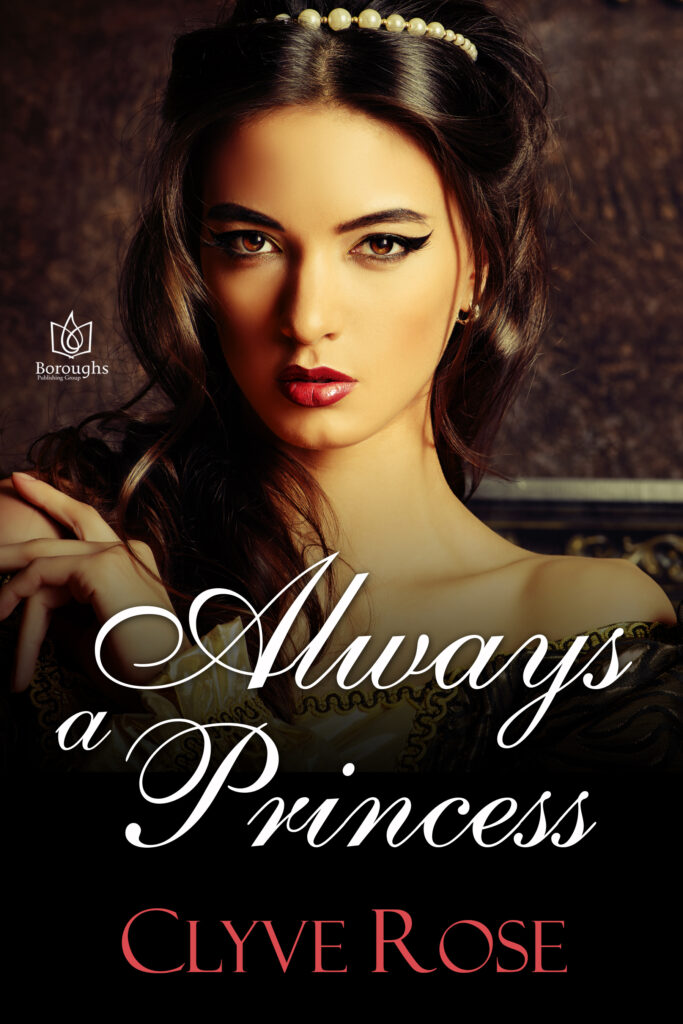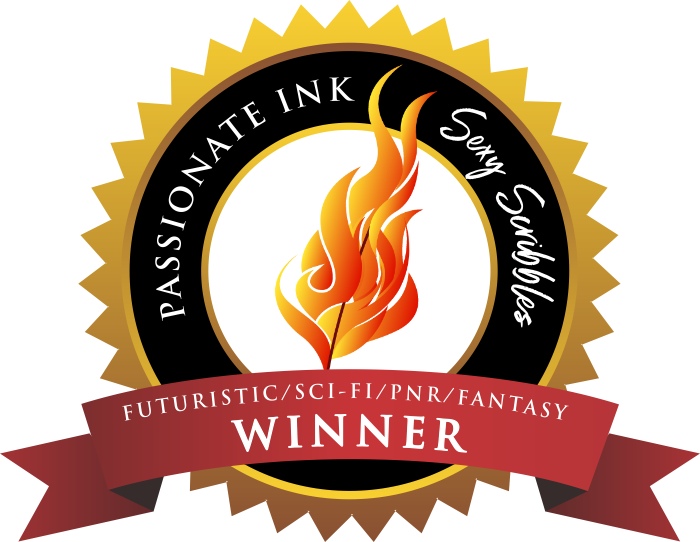Clyve Rose has been writing historical romance fiction for the best part of two decades. She works in the historical romance, fantasy, and speculative fiction genres. She also creates literary novels under an alternative pen name. In between her devotion to fiction writing, Clyve researches various mythologies and historical periods, often basing her characters on actual historical personalities. When Clyve isn’t writing fiction, she can be found pounding the sand at just about any of the beautiful beaches near her Australian home. She is also addicted to short-haul ocean swims and has a ‘thing’ for Poseidon, ancient Greek god of the Seas. Much of the inspiration in her stories is drawn from the ocean landscapes near her home.
FWM: Many of your books are based on actual historical personalities. Why is historical accuracy so important?
This is an excellent question! Writing historical fiction has a lot of ‘world-building’ elements to its creation. My goal is to transport the reader to another time and/or place (in my works, Regency England). It’s an escapist form of reading, and I do everything I can to make that world as real for my reader as possible, and to maintain that world throughout the story.
This includes using language that sounds authentic and presenting scenarios that are possible for the time period. I am absolutely a history buff so I add elements of my research in there whenever I can. In Always a Princess for example, I searched carefully for a technique of removing a bullet, that reads plausibly in an era where germ theory had not yet come about. The technique the heroine uses has actually been around since the days of Ancient Egypt and was known to the Vikings. While it wasn’t common knowledge in English medicine at the time the story takes place, it’s not impossible that a well-travelled non-English girl might have learned of it.
Readers of historical fiction keep us writers honest – if I were to include something wholly incongruous, they’d be sure to let me know they noticed and I think that’s fair. They ‘go into’ my world of Regency England when they read my book, so it’s my responsibility to hold that world ‘true’ for them until the end of the story and give my reader the best experience possible.
FWM: Tell us about your new book, Always a Princess.
Always a Princess is my debut Regency romance novels. I wrote it in response to Chapter 39 of Austen’s Emma, where the Romany people are depicted so poorly.
In my story, a rather careless hero (second son to a duke) duels a man who’s afraid to show up, so he sends a Romany man in his stead. The Romany Prince, in fact.
When the Prince is wounded, his feisty sister is there to aid in her capacity as a herbal healer and so begins a juxtaposition of how the Roma handle ‘family’, and how the English do it.
It’s a slow-burn romance, as our two protagonists from very different backgrounds find that deep-feeling common values are able to transcend societal obstacles – eventually.
FWM: Judgment is the blood sport of our millennia – why it is like “The Colosseum” online nowadays?
I believe it’s because it’s so easy to wound and throw pain out there, with no consequence and very little awareness. There’s a lot of anger and pain in the world – this is nothing new. The internet gives people a different place to ‘toss’ their emotional garbage, without having to answer for it in any real, meaningful way.
Power for power’s sake isn’t humane, yet it’s so often what society conditions us to aspire to. We talk of ‘influencers’ as though that’s a greater power than self-mastery and I think this might be a mistake. It’s highly doubtful that Person A taking down Person B online is the best they can do with themselves. Is it easier than working on their own issues? Yes. Is it better? Hmmm…I do not think so. Wilfully ignoring consequence does not mean there are none. Real people are at the end of those connections. They can be hurt. They might be a child. They might be vulnerable and suicidal…just because it feels like we live in The Matric now, doesn’t mean we do. We’re all still very real.
Being human means being flawed. Tearing each other to shreds over that feels…it feels like people have forgotten that being human means operating from their humanity, not their ego. Relying on virtual communications makes this harder to do. We’ve exchanged depth of discussion, for breadth of input. So, a million opinions but little nuance, less dissembling. Very little actual discourse.
I do believe people deserve more grace than this – from themselves and from each other. We’re better than online snark but we’ve grown careless of each other, and ourselves. We’ve let our egos play out far too much and far too often and it doesn’t feel healthy. Real people savaging each other online isn’t kind and it isn’t good. It can’t possibly lead the world towards anything better and I do believe we are ALL better than this.
FWM: How did you infuse yourself into the main character?
Syeira, my heroine, is the type of person who becomes so focused on her area of expertise and the task at hand that she might not notice anyone or anything around her – like a handsome man attempting to gain her attention. Not while she’s working, thank you! We have this in common.
She also lives in a culture-within-a-culture, continually aware of the prejudice against her. As a Jewish woman I have lived with this all my life. You develop emotional immunities to slights, and even casual ignorance. This is why some of the offensive moments strike Wil so much more than Syeira – she is, sadly, used to it. She can’t keep fighting. She’ll never survive if she does. It’s very much a case of picking your battles. When she has to fight for aid to treat her brother – that’s a fight she’ll have. Arguing against ignorance and bigotry on a daily basis? Exhausting. She just gets on with her life. Anyone whose lived experience includes micro-aggressions likely understands this, just as they understand what it takes to speak truth to power. It’s always a risk, and you’re never ‘quite safe’.
As for Wil, my hero, he feels like something of an outsider until he finds his place at her side and that’s something to which I’ve always related. Just because one is born into a culture and place in the world, doesn’t mean they belong there. It doesn’t mean they can’t choose differently. This is something both protagonists have in common with each other – and with me.
FWM: Share a favorite scene from the book.
My favorite scene is in Chapter 24, in the churchyard, in a howling rainstorm (thank you, Lancashire weather!), where Wil realizes Syeira loves him and he doesn’t really understand what that means, or what to do about it. It’s the point at which Syeira shows her courage. Wil’s takes a little longer to manifest but they get there in the end.
FWM: Who will enjoy this book?
Readers who enjoy steamy historical fiction, especially from perspectives a little different from the tried and true. Readers who understand that even when the attraction happens very early in a romance, real love may take longer. The knowing of the other person can be slower – so it’s a slow burn because both characters have some growing to do.
I hope people find it an escape into another world. One of happy endings – and no lockdowns! J
FWM: On a personal level, how is writing therapeutic to you?
I write for the same reason I read – to escape into other worlds. I can become completely lost in the grounds of Clifton Hall (the fictional estate in my novel), or on the Lancashire moors. Writing is a big part of how I process the world. Almost all the interactions I meet with in my life find their way into one of my stories sooner or later. For example, my heroine in my new novella series is based on the woman on Twitter who developed the plagiarism algorithm that helped uncover how far Cristianne Seruya’s plagiarism went. I promised to put her in a novel and here she is (with a little Ada Lovelace thrown in).
Happy endings are a lovely idea as well, and writing these for my fictional characters always helps me hold hope for more of the same in the real world.
FWM: What’s next?
I’ve just released my first romance-mystery novella (came out on 15 July in the collection ‘Secrets of the Soho Club’). I have the second novella with the same cast of characters releasing 8 Oct. (preorders have just gone live for this collection ‘Sweet Christmas Secrets’), and there will be more of these featuring my Regency mystery-solving couple.
The sequel to Always a Princess will be out by Xmas. I am planning a third installment for that series too next year but we’ll see how these go.
1Please provide your website/social media handles
Website, newsletter signup and blog: www.clyverose.com
Twitter: @clyverose
Instagram: #clyverose
Facebook: https://www.facebook.com/clyve.rose.5/
Amazon profile: https://www.amazon.com/Clyve-Rose/e/B08NYGF3JJ/ref=dp_byline_cont_ebooks_1




